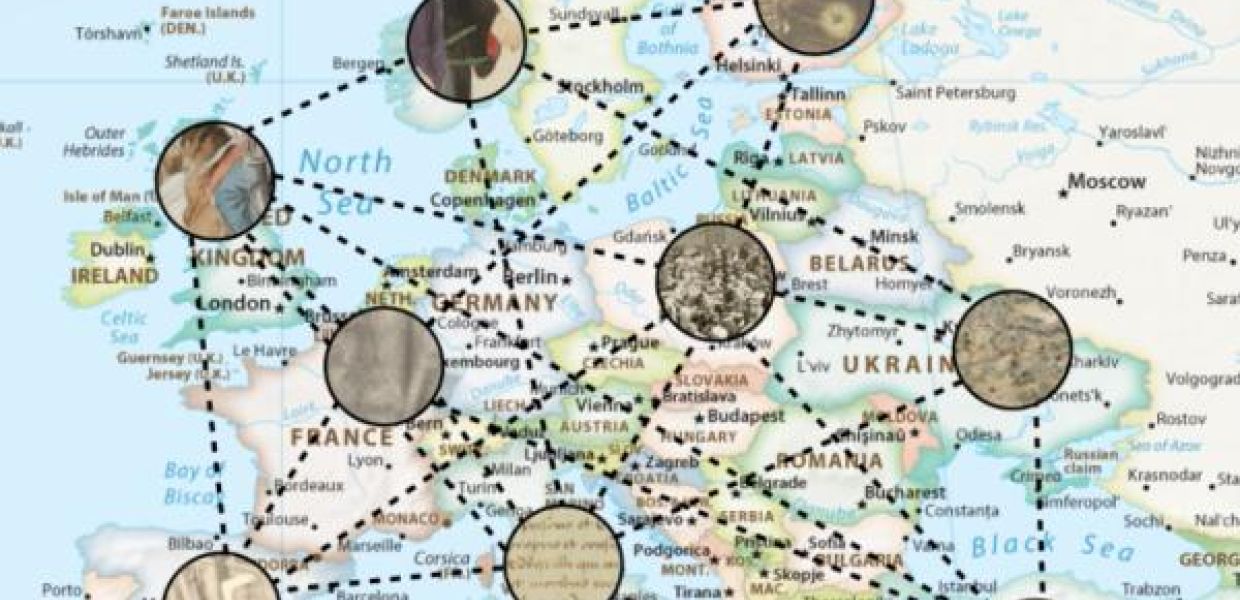Archives Portal Europe invites new members on International Archives Day

Today, 9 June 2017, is International Archives Day, and to commemorate that, we have a guest blog from Marta Musso of the Archives Portal Europe Foundation.
The Digital Revolution is often placed in an historical sequence after the Agricultural Revolution and the Industrial Revolution. While its overall impact on economies and human lives is arguably not as radical as the other two main human revolutions, there is one field in which the Digital Revolution has dramatically transformed things forever: archival institutions.
The Digital Revolution has brought about the Information Age - and archives are a primary resource of information. There is perhaps no other field that is facing as many challenges as archives since the arrival of personal computers and the internet: from the enormous problem of preserving digital-born sources to archiving the World Wide Web, from digitization to data migration.
Still, the Digital Age is also unquestionably the greatest way for archives and researchers to advance in their practice. The possibility of creating networks, the new tools for research (just think of Optical Character Recognition), the growing indexing standardization, interactive maps, just to mention a few. The new approaches made possible by the Digital Revolution are finally unleashing the capacity of archives to organize and make available human knowledge – especially when archival institutions come together.
It is with these important premises that in 2009, archivists from all over Europe met to start a very ambitious project: the harmonization and digitization of all European archives in one single repository, available online. Over the years, they have worked to create what is now the largest online archive catalogues repository in the world: the Archives Portal Europe, or APE.

The portal allows people to search thousands of archival collections from all over the world, through a simple Google-like query using keywords. This makes it easy and intuitive even for people who are unfamiliar with archival records. Furthermore, it supports multilingual search, running one query in many languages at the same time.
APE is currently standing at 255 million records, but the number is growing constantly. Several hundred institutions from more than 30 countries have uploaded their holdings into the portal, and thousands more are involved in the project. The final aim is to include any archive that holds records related to European heritage – that is to say, potentially any archive in the world. Furthermore, the portal acts as a data aggregator for Europeana, contributing historical records to its wider artefacts preservation project.

Screenshot from APE video, graphic by Acting Out, in Turin.
Since 2015, APE has been managed by the Archives Portal Europe Foundation (APEF), an independent and self-funded institution based in the Netherlands that coordinates the work of all who are involved in the project.
APEF is constantly seeking new collaborations. The more institutions participating in Archives Portal Europe, the more the digital landscape of European archives will grow and diversify, and the more content will become available for scholars, researchers, and anyone willing to discover European history. Even more importantly, the heritages and cultures of more and more European archival institutions will be preserved and passed on to the new digital generations.
Any institution interested in uploading their holding to the portal can get in touch with the Governing Board (president@archivesportaleuropefoundation.eu). Participation is completely free of charge, and it allows them to connect with institutions from all over the world (the updated list is available on the website) and to be part of a project that is making archival research on a worldwide scale as easy as Googling.
For more information, please visit www.archivesportaleuropefoundation.eu and our Wiki page for the technical information.
